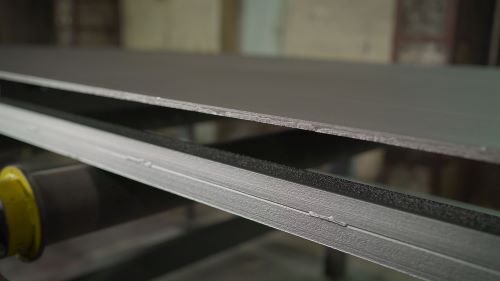From food and beverage equipment to roofing and gutters, shipping containers, and HVAC systems, there are nearly endless applications of aluminum sheet metal across several industries. It is so widely used because of its many advantages. For instance, it is easy to fabricate and resists corrosion better than other metals. Professional fabricators use specialized equipment, like CNC plasma cutting tables, to process aluminum sheet metal. Here is a brief overview of how aluminum sheet metal is manufactured:
- Forming – This process bends or stretches the aluminum sheet metal into the required shape.
- Cutting – Sheet metal must be cut to specific dimensions, and certain shapes may need to be cut from the material. Cutting can be shear, wherein a punch, drill, or similar tool is used, or non-shear, as with CNC plasma and waterjet cutting tables that utilize automated cutting heads.
- Welding – Once the parts have been formed or cut, they can be attached together using welding.
- Finishing – To further enhance the performance properties of aluminum, the material can be finished via processes like deburring, annealing, and coating.
Advantages of Aluminum Sheet Metal
As mentioned, aluminum holds many distinct advantages over other types of metal, both in terms of how it’s fabricated and how it performs in unique applications. Let’s look at the benefits aluminum sheet metal has to offer:
Resistance to Corrosion
Aluminum is naturally resistant to rust, which is why it is popularly used in food and beverage production and marine applications. Compare this performance to steel, a material renowned for its strength but also susceptible to quick decay if not properly finished—a process that can drive up the costs of the product.
Thermal Conductivity
Aluminum sheet metal is a durable material that offers high resistance to heat. That’s why it is often used in high-temperature applications, such as commercial kitchen equipment.
Light Weight
Aluminum weighs less than steel and other metals, which means it can be processed much faster. Its light weight also makes it extremely versatile as far as which shapes and profiles it can be fabricated to form.
Grades of Aluminum Sheet Metal
Aluminum sheet metal is available in different grades depending on the application of the finished product. Common examples of aluminum sheet metal grades include:
- Grade 1100-H14 – Though it’s the weakest grade of aluminum, 1100 effectively resists damage from weather and chemicals, making it an ideal choice for chemical processing systems.
- Grade 3003-H14 – Easily processed yet stronger than 1100, 3003 is popularly used in storage cabinets and tanks.
- Grade 5052-H32 – An even stronger grade, 5052 can be found in the chassis of automobiles and military equipment.
- Grade 6061-T6 – The strongest grade listed here, 6061 is a heat-treated alloy that is used in aircraft and other vehicles. The downside to this grade is that its strength makes it harder to form, weld, or cut.
Industry-Leading CNC Plasma Cutting Tables
Professional metal fabricators need the right equipment to make a name for themselves in the industry. That’s why they turn to Machitech for custom CNC cutting machines. Our CNC plasma, oxy-fuel, and waterjet cutters are some of the most innovative in the industry, and they come with free and unlimited support for life. Contact Machitech today to learn more.
 English
English  Français
Français 
